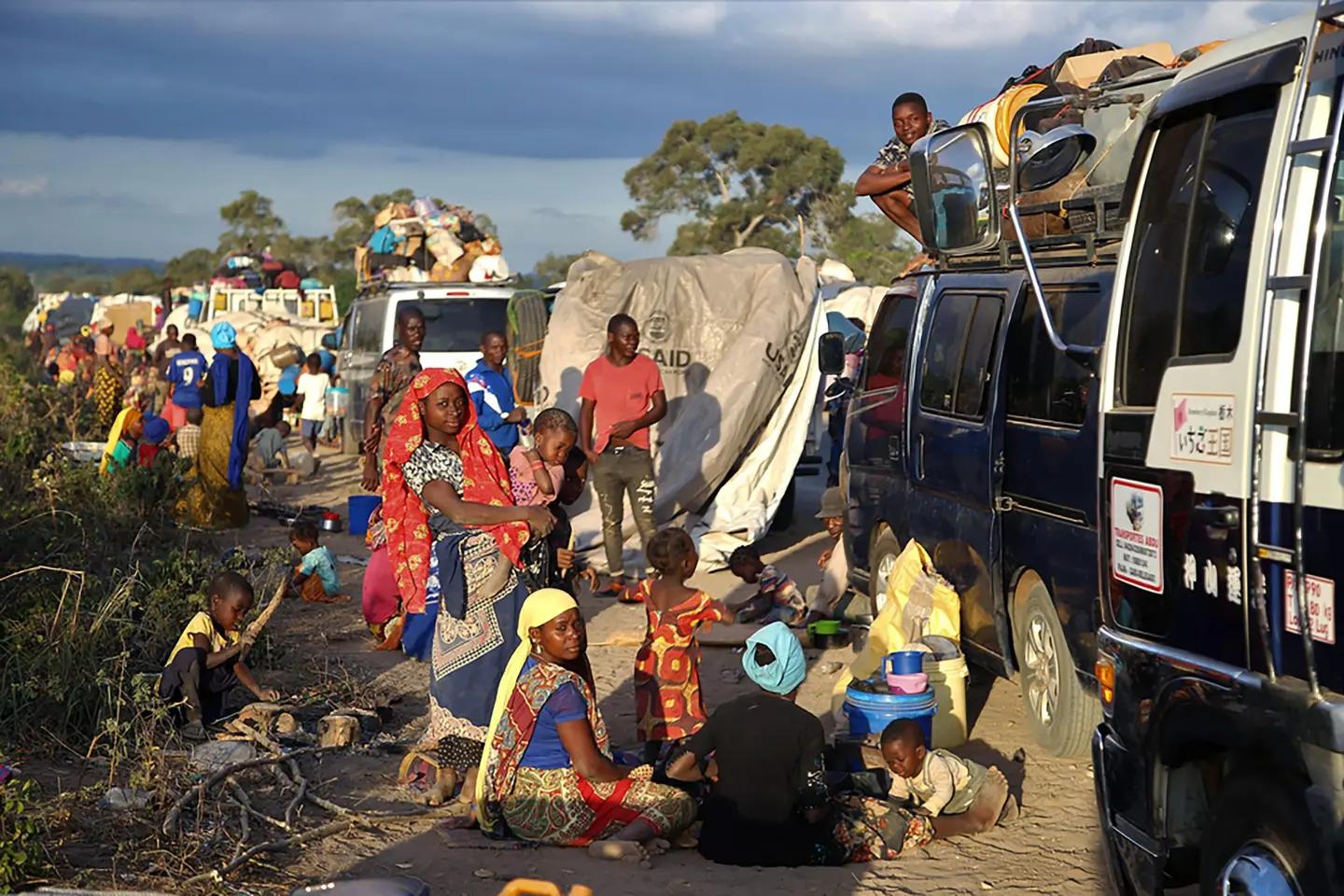YAOUNDÉ, Cameroon – Amid spiraling violence and what he describes as a “population exodus” due to a jihadist campaign mostly targeting Christians, the Catholic bishop of northern Mozambique is warning that the deadly conflict and humanitarian crisis risks being ignored amid global focus on other hotspots such as Ukraine and Gaza.
“The biggest risk is that [the victims] will be forgotten due to other wars in the world”, said Bishop António Juliasse Ferreira Sandramo of Pemba in the northern Cabo Delgado province of Mozambique.
“We definitely cannot do anything,” Juliasse said in a recent message to the pontifical charity Aid to the Church in Need, saying that in his own diocese whole villages have been destroyed, causing thousands of people to flee.
Juliasse said that missionaries are joining the fleeing population in an effort to minister to their needs in exile.
According to the U.N.’s International Organization for Migration, a new outbreak of a jihadist insurgency in Cabo Delgado has uprooted at least 14,000 people in recent weeks, many of them children fleeing the violence by bus, canoe and on foot. Much of the violence has been directed against Christian targets, in a country where Christianity represents around 60 percent of the population.
Juliasse confirmed that the situation is growing worse.
“The violence perpetrated in this district in the last two weeks was such that around a dozen villages, some very populous, were targeted, with the destruction of homes and institutions,” he said. “In these villages, all Christian chapels were destroyed.”
“The highest point so far was the attack on Mazeze, the administrative post of the Chiúre district, with the destruction of so many government-run public and social infrastructures, as well as our mission, which provided a lot of social support to the people of the region,” Juliasse said.
The bishop spoke of “a drama of flight” and “an authentic population exodus,” as armed groups continue to pummel various communities.
“The populations of villages already reduced to ashes are fleeing, as are the populations of villages that now find themselves at risk of being attacked. Many follow a path that is only certain of the starting point,” Juliasse said.
“[They] go in search of a safe place. I don’t know where they will find it… maybe, [just] the least insecure one,” he said.
The 55-year-old bishop noted that many people flee carrying just “a bundle on their head or on the only family bicycle. It’s all they have left now. It will certainly not be long before hunger, thirst and disease arrive.”
He said they are fleeing for their lives, afraid to suffer “the same fate as those who were beheaded and shot.”
The cleric described the story of a young mother, who is the niece of an employee of the diocesan curia who ran away, taking her newborn baby with her.
“Between the heat and the dust, she drank the water she found, developed diarrhea and vomiting and succumbed [to the disease]. The little baby was left without a mother, without guilt and without peace,” he said.
The fresh wave of attacks comes after Mozambican authorities, with assistance from Rwandan troops and a military contingent from the Southern African Development Community, initially appeared to have brought the situation under control. The Mozambican military in mid-December claimed that 90 percent of Cabo Delgado had been secured, but independent analysts warned that the jihadists had merely made a tactical retreat and would strike back.
President Philippe Nyusi of Mozambique has expressed concern over the new wave of attacks.
“There are a significant number of people who move from one area to another and complain about support,” Nyusi said after a meeting with the country’s military commanders.
“Terrorists try to recruit in this province, which is why we see these movements,” he said.
According to the UNHCR, at least two million people had been forced to flee from their homes since fighting broke out in the region in 2017. At least 5,000 people have been killed.
The European Commission estimates that some 3.5 million people are now faced with the prospect of acute food insecurity in northern Mozambique.
Pope Francis on Feb. 18 weighed in on the situation, offering words of comfort to a desperate, suffering and fleeing people.
“The violence against defenseless populations, the destruction of infrastructure, and insecurity are again rampant in the province of Cabo Delgado, Mozambique, where the Catholic mission of Our Lady of Africa in Mazezeze was also set on fire in recent days,” Francis said during his Angelus prayer.
“Let us pray for peace to return to that tormented region”, he said. “Let us not forget: War is always a defeat. Always,” he said.














